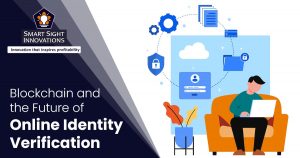 The Need for Secure Online Identity Verification
The Need for Secure Online Identity Verification
As more people move online to do things like shop, pay bills, and connect with friends, it’s becoming increasingly important to know who we’re interacting with. And that’s why identity verification becomes vital.
Essentially, identity verification is a way for companies and websites to make sure you are who you say you are when you sign up for their services or make a purchase. Traditional methods of identity verification are not always secure, and they can be expensive and time-consuming.
But blockchain technology has a lot to offer when it comes to online identity verification. This article explains how blockchain technology can improve online identity verification standards to enable secure transactions and communications, making the internet truly safe for everyone.
Limitations of Traditional Identity Verification Methods
Traditional methods of identity verification have been around for a long time. They include things like presenting a government-issued ID or answering personal questions about your past. However, these methods are not always foolproof. For example, someone could steal your identity by using your personal information to open a bank account or apply for a credit card. This is where blockchain technology can help.
How Blockchain Can Transform Online Identity Verification
Blockchain technology is a way to store and share information securely using its decentralized architecture. This means that instead of having all of your personal information stored in one central database that can be hacked or compromised, it can be stored on a blockchain where it is encrypted and spread out across a network of computers.
Blockchain-based identity verification systems are already in use in various industries, and their popularity is increasing due to their security and transparency. The system works by creating a digital identity for each user that is stored on the blockchain.
The digital identity consists of a unique identifier, such as a public key, and personal information, such as name, address, and date of birth. The user can choose to share their digital identity with service providers, such as banks or e-commerce platforms, to verify their identity.
This makes it much harder for someone to steal your identity, because they would need to access and alter every copy of your information on the blockchain. Decentralized identity is a new concept that is made possible by blockchain technology.
Essentially, it allows individuals to control their own personal information and share it with others securely. This is known as a self-sovereign identity (SSI) system.
In an SSI system, you would have your own digital identity that you control and can share with others when needed. This would make it much harder for someone to steal your identity, because you would be in control of your own information.
Blockchain uses cryptographic techniques to encrypt and protect personal information to make the identity verification process tamper-proof. This means that only authorized parties can access and modify the information on the blockchain, making it much harder for someone to steal your identity or tamper with your personal information.
Additionally, because the information is stored on a decentralized network of computers, there is no central point of failure that can be exploited by hackers.
Smart Contracts for Automated Identity Verification
Smart contracts are self-executing contracts with the terms of the agreement between buyer and seller being directly written into lines of code. These contracts can be used to automate identity verification on the blockchain.
For example, a smart contract could be created that requires a user to verify their identity using biometric information (such as a fingerprint or facial recognition) before they can access a certain service or make a purchase. This would make the process of identity verification much faster and more efficient.
Blockchain-based identity verification is already being used in a number of real-world applications. For example, the Estonian government uses a blockchain-based identity verification system called e-Residency, which allows non-Estonians to access Estonian services and conduct business online.
Additionally, some banks and financial institutions are experimenting with blockchain-based identity verification to make their processes more secure and efficient.
The Future of Online Identity Verification
The future of online identity verification looks bright, with blockchain technology providing a secure and efficient way to verify identities online. However, there are still challenges that need to be overcome, such as the need for standardization and interoperability across different blockchain platforms.
But there are some regulatory and legal challenges that need to be addressed, such as how to ensure that individuals’ rights to privacy and control over their personal information are protected.
As blockchain-based identity verification becomes more widely adopted, regulatory and legal frameworks will need to be put in place to ensure that individuals’ rights are protected. There is also a need to identify standards and guidelines for how different blockchain platforms can interoperate with each other, to ensure that individuals can use their digital identities across different services and platforms.
Embracing Blockchain for Secure Online Identity Verification
In conclusion, blockchain technology has the potential to revolutionize the way we verify identities online, by providing a secure and decentralized way to store and share personal information. By embracing the potential of blockchain technology, we can create a future where individuals have more control over their own personal information, and where online transactions and interactions are more secure and efficient.
However, to fully realize this potential, we will need to overcome technical, regulatory, and legal challenges, and work together to create a standardized and interoperable system for blockchain-based identity verification.











